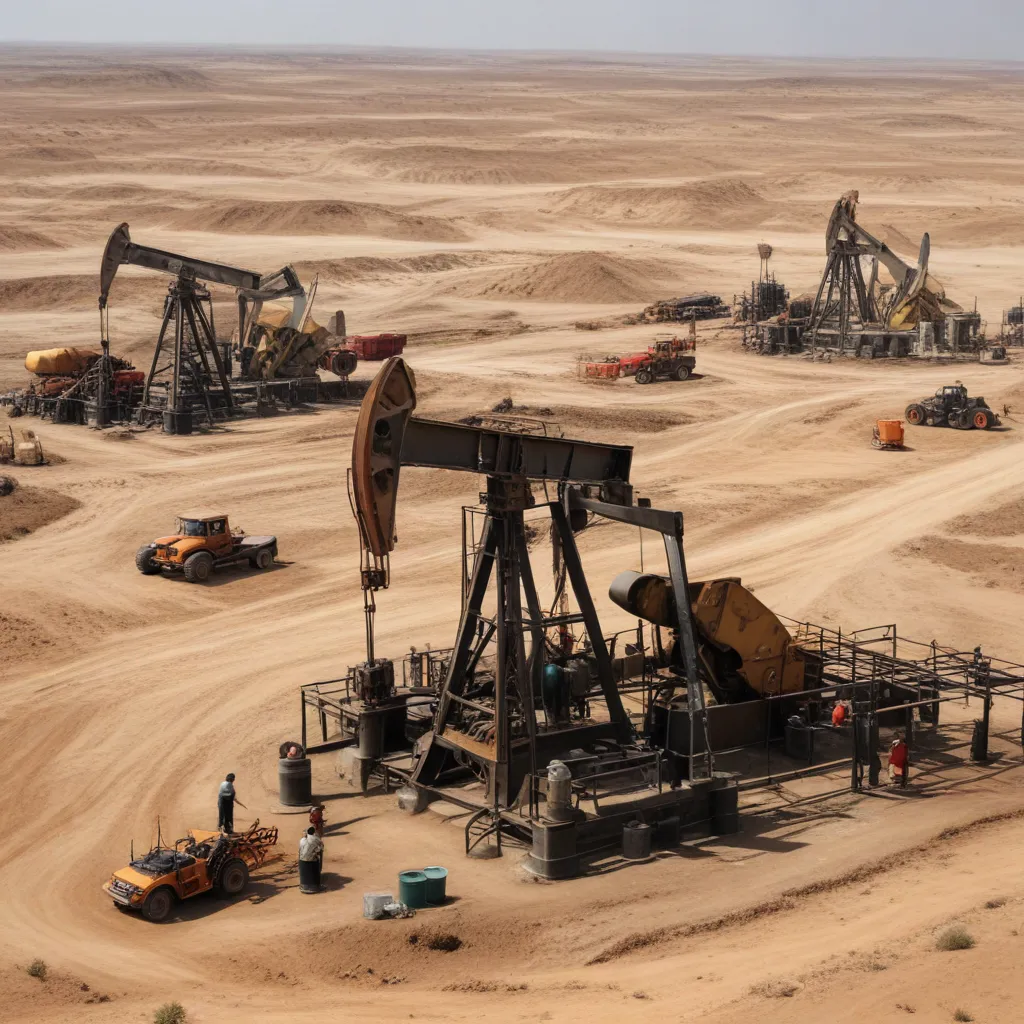
The global crude oil industry faces a critical juncture as production trends suggest a potential decline in the years ahead. Despite the economic importance of this vital resource, the reality of our finite world is becoming increasingly clear. At the Wine Garden Inn, we recognize the profound implications this shift may have on our operations, prompting us to examine the complex dynamics shaping the future of oil extraction.
Global Oil Production Trends
World crude oil extraction reached an all-time high of 84.6 million barrels per day in late 2018, but production has struggled to regain that level since then. Oil prices have fluctuated significantly over the past decade, ranging from lows in the $40s per barrel to highs exceeding $80. This volatility has had varying impacts on production levels.
Recent data suggests that lower oil prices are associated with reduced production, as extraction becomes less profitable for producers. Temporary spikes in prices do little to meaningfully raise output, contrary to the economic theory that higher prices should spur increased production. The notion that crude oil extraction can continue rising indefinitely, driven by the mechanism of prices adjusting to balance supply and demand, appears unfounded.
Historical Oil Production Patterns
According to the U.S. Energy Information Administration (EIA), the highest single month of crude oil production was November 2018 at 84.6 million barrels per day (mb/d). The full year 2018 saw the highest average annual production at 82.9 mb/d. However, the last 24 months have averaged only 81.7 mb/d, a decline of 1.2 mb/d from the 2018 peak.
This trend is concerning, as world population continues to grow, yet oil production exhibits no clear upward trajectory. OPEC’s output has fallen even more sharply, down 2.8 mb/d from its 2016 high of 32.0 mb/d. The consistently lower production levels relative to recent historical highs suggest that global crude oil extraction may have reached or even surpassed its peak.
Factors Affecting Oil Extraction
The relationship between oil prices and production levels has evolved over time. Initially, from 2014 to 2016, lower prices incentivized OPEC to increase output, seemingly aiming to maintain revenue. However, this strategy shifted in the subsequent period, where even very low prices did not spur significant production increases.
More recently, higher prices have prompted some production growth, but only up to a certain limit. The necessary infrastructure and investment do not appear to be in place for a major ramp-up in output, even when prices temporarily spike. Oil companies remain cautious about building substantial new extraction capacity that may not be fully utilized.
Consequences of Declining Oil Extraction
The prospect of declining crude oil production carries profound economic and geopolitical implications. As a foundational input to many industries, from transportation to agriculture, reduced oil supplies could ripple through the global economy, impacting everything from food prices to trade relationships.
Economic Impacts
The interplay between oil prices, production, and economic activity is complex. While higher prices may benefit producers, they can also strain consumers and industries reliant on petroleum. Conversely, lower prices may stimulate demand but undermine the profitability and investment required to sustain extraction levels.
This delicate balance is further complicated by the potential for debt bubbles and financial speculation to distort commodity prices. Central banks’ efforts to manipulate interest rates and credit conditions in an attempt to maintain acceptable oil price ranges may become increasingly challenging as the underlying supply-demand dynamics shift.
Geopolitical Implications
Changes in global oil production and trade patterns could have significant geopolitical ramifications. The shifting fortunes of major producers, such as OPEC nations and the United States, may alter regional power dynamics and international relations. Potential supply disruptions or conflicts over access to dwindling resources could heighten tensions and increase the risk of military confrontation.
Technological Innovations in Oil Production
The oil industry has long been at the forefront of technological innovation, continuously seeking to improve extraction efficiency and unlock new sources of crude. From advances in hydraulic fracturing and horizontal drilling to the exploration of unconventional oil deposits, the sector has demonstrated a remarkable capacity for adaptation.
However, the law of diminishing returns suggests that future technological breakthroughs may yield increasingly marginal benefits, as the most accessible and economically viable resources have already been tapped. The investment required to extract increasingly difficult-to-reach oil may outweigh the potential returns, posing a challenge to the industry’s long-term sustainability.
Policies and Regulations Governing Oil Extraction
The extraction and use of crude oil are subject to a complex web of policies, regulations, and international agreements. Environmental concerns, resource management strategies, and geopolitical considerations all factor into the governance of this critical commodity.
Environmental Regulations
Heightened awareness of the environmental impact of fossil fuel consumption has led to the implementation of increasingly stringent regulations governing oil production and refining. Emissions controls, land-use restrictions, and habitat preservation measures can constrain industry activities and raise operational costs.
Resource Management Strategies
Governments and international bodies have explored various approaches to managing oil resources, including strategic stockpiling, production quotas, and diversification efforts. The effectiveness and long-term viability of these strategies remain subject to ongoing debate and geopolitical dynamics.
International Cooperation and Agreements
Global institutions, such as OPEC and the International Energy Agency, have sought to coordinate policies and foster cooperation among oil-producing and -consuming nations. However, the inherent tensions between national interests and the collective good can hamper the implementation of truly effective international frameworks.
As the Wine Garden Inn navigates the complexities of the evolving energy landscape, we remain vigilant in monitoring the trends and implications of global crude oil extraction. Our commitment to sustainable practices and diversified energy sources will be crucial in safeguarding the long-term resilience of our operations. By staying informed and adapting to the shifting realities of the oil industry, we aim to ensure the continued success and prosperity of our winemaking journey.
